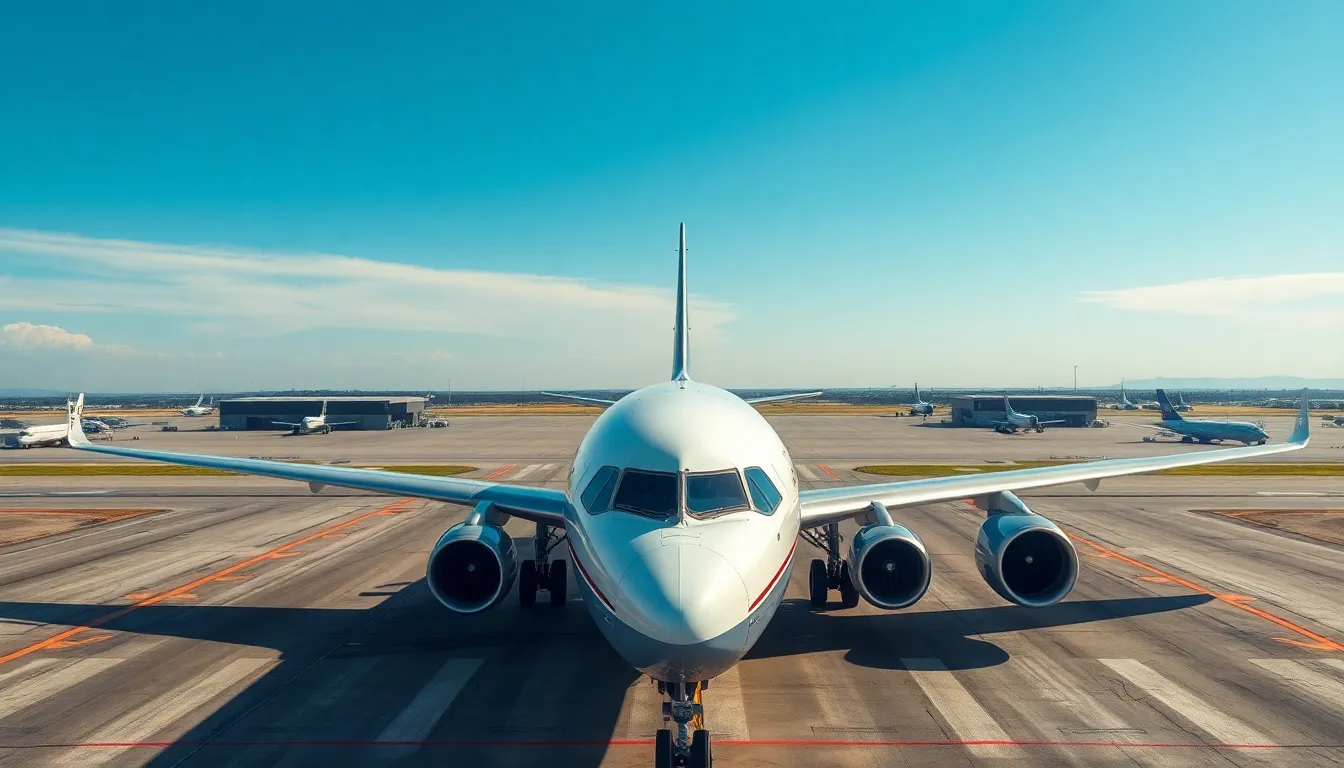Table of Contents
ToggleElon Musk, the tech mogul known for launching rockets and electric cars, has a knack for keeping the world on its toes. So when whispers began circulating about him possibly buying Boeing, eyebrows raised and jaws dropped. Could the man behind SpaceX and Tesla really be eyeing a giant in the aerospace industry?
Did Elon Musk Buy Boeing?
Rumors about Elon Musk’s acquisition of Boeing circulated widely in recent months. Speculation grew, fueled by Musk’s history of bold and unexpected business moves. As CEO of SpaceX and Tesla, Musk demonstrated an ability to reshape industries, prompting many to consider what such a merger might entail.
Boeing, a leading manufacturer in the aerospace sector, faced challenges in recent years. Issues with aircraft safety and production delays shifted public perception. In this context, Musk’s potential interest in Boeing raised eyebrows, particularly given his focus on innovation and sustainability.
While no formal announcement occurred, speculation highlighted key implications. Musk’s management style focuses on rapid advancement, suggesting he might implement transformative changes at Boeing. Analysts anticipated shifts in corporate strategy, with an emphasis on electric aviation and autonomous systems.
Financial metrics placed Boeing’s valuation at approximately $100 billion. Musk’s wealth, estimated around $250 billion, positions him to make significant moves within the industry. Stakeholders at Boeing reacted cautiously to these rumors, monitoring developments closely.
Statements from industry experts emphasize the strategic advantages of a potential merger. Collaborations might accelerate technological advancements, particularly in space travel and commercial aviation. Investors remain divided, considering both risks and rewards associated with such a monumental shift.
As speculation lingers, officials from both parties remain silent. If discussions occurred, details remain under wraps, contributing to the intrigue. The aerospace community continues to watch closely, factoring in the possibility of transformative developments in the industry landscape.
Background of the Acquisition Rumors

Speculation about Elon Musk acquiring Boeing has gained traction due to his history of bold business ventures. This section explores relevant aspects fueling these rumors.
Elon Musk’s History with Acquisitions
Musk has a notable history of transformative acquisitions, including the purchase of SolarCity by Tesla in 2016. His ability to revitalize struggling companies stands out, as seen with SpaceX’s successful turnaround of rocket production. Focused on innovation, Musk often seeks opportunities that align with his vision for the future. Such bold moves have prompted analysts to consider potential synergies between Musk’s companies and Boeing. His proactive approach drives speculation about whether he might apply similar strategies in the aerospace sector. Stakeholders recognize that Musk’s influence could drastically shift Boeing’s trajectory if an acquisition materializes.
Boeing’s Current Market Position
Boeing faces significant challenges in the aerospace sector, notably linked to recent production delays and safety issues. With a market valuation around $100 billion, the company is still a major player in commercial and defense aviation. Competitors like Airbus have increasingly gained ground, creating a competitive pressure. Analysts note that Boeing is striving to improve its operational efficiency amidst these hurdles. Market analysts view the situation as a pivotal moment for Boeing, raising questions about strategic partnerships or acquisitions. Stakeholders remain cautious yet hopeful as the aerospace industry navigates these turbulent times.
Analysis of the Claims
Speculation about Elon Musk acquiring Boeing intensifies as various sources circulate rumors. Analysts point to Musk’s entrepreneurial history as a foundation for such claims. His recent ventures in aerospace through SpaceX added credibility to the narrative. Major publications and social media platforms serve as significant sources, amplifying the discussion and shaping public perception.
Sources of the Rumors
Multiple channels contribute to the ongoing rumors. Social media influencers often amplify unverified information, leading to widespread speculation. Industry insiders sometimes leak information, reflecting deeper concerns within Boeing. Analysts cite Musk’s past bold moves and Boeing’s current struggles as catalysts for the rumors. Current challenges like production delays and safety issues heighten the urgency for a strategic shift, thereby encouraging discussions about potential acquisitions.
Verification of Information
Verification of the acquisition claims remains elusive. Both Musk and Boeing officials have refrained from commenting officially, leaving analysts to gather insights from indirect sources. Stakeholders in both companies currently express skepticism regarding the likelihood of a deal. Analysts recommend relying on established financial news outlets for accurate updates on this topic. Monitoring developments continuously will be essential, as new information could clarify the situation surrounding these rumors.
Implications of a Potential Acquisition
Speculation about Elon Musk’s potential acquisition of Boeing raises significant implications. Observers highlight various areas that could experience notable changes due to this hypothetical shift.
Impact on the Space Industry
If Musk acquires Boeing, innovations in the space industry may accelerate rapidly. He could integrate Boeing’s aerospace capabilities with the technologies from SpaceX. This combination may propel advancements in reusable rocket technology and satellite deployment. Collaborations between Musk’s companies and Boeing could lead to enhanced efficiencies in space travel. Increased investment in research may also arise, focusing on next-generation spacecraft. Elon Musk’s vision emphasizes sustainability, possibly shifting Boeing’s traditional strategies toward greener solutions.
Effects on Boeing’s Operations
Boeing’s operations might transform significantly under Musk’s leadership. Restructuring efforts could streamline processes and improve production timelines. Musk’s style typically emphasizes rapid iteration, which could address longstanding production issues. Adoption of electric and autonomous systems may diversify Boeing’s product line. Stakeholders may notice an increased focus on innovative aircraft designs. Supply chain management could also see enhancements, leading to cost reductions and improved delivery schedules.
The speculation surrounding Elon Musk’s potential acquisition of Boeing continues to captivate industry experts and the public alike. While definitive information remains scarce, the implications of such a move could be significant. Musk’s track record of transforming struggling companies suggests that his leadership might usher in a new era for Boeing, especially in the realms of electric aviation and autonomous technology.
As the aerospace sector faces mounting challenges, the possibility of Musk’s innovative approach could lead to groundbreaking advancements. Stakeholders and analysts alike will be watching closely, as any developments in this area could reshape the future of both Boeing and the broader aerospace industry. The unfolding narrative promises to be intriguing, with potential shifts that could redefine aviation as we know it.




